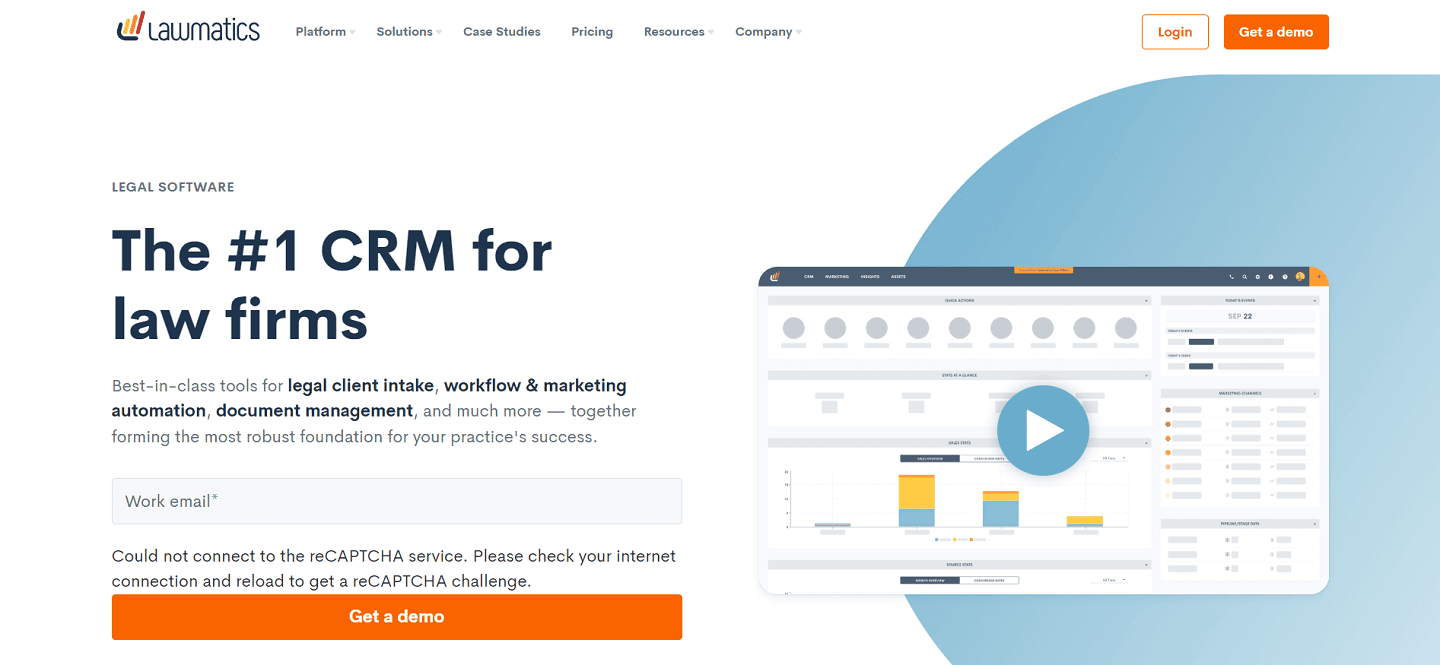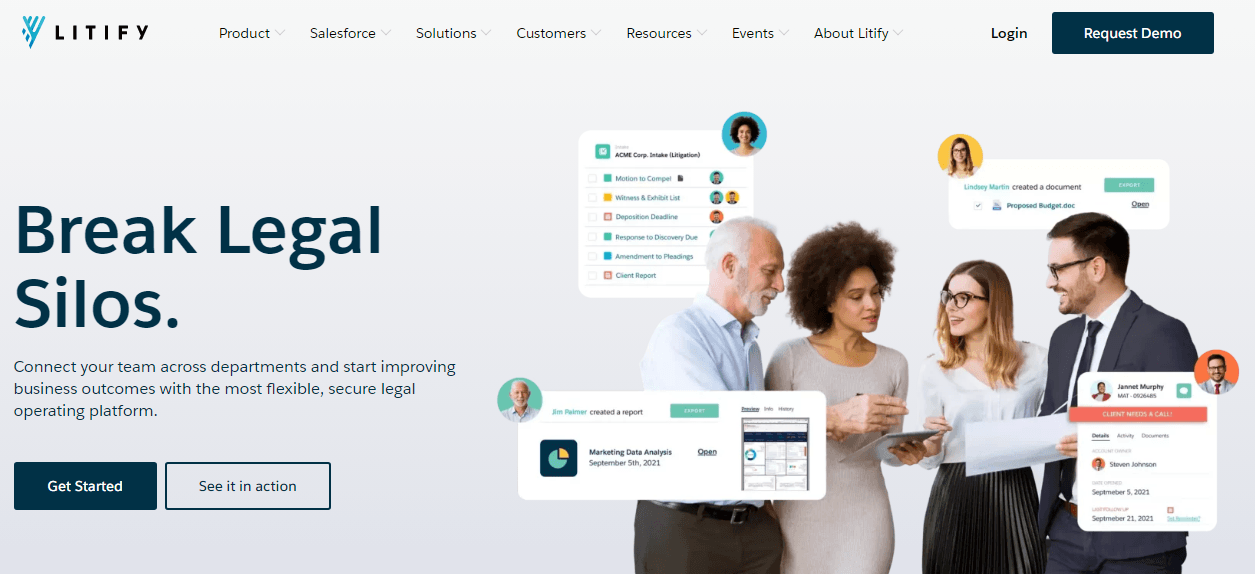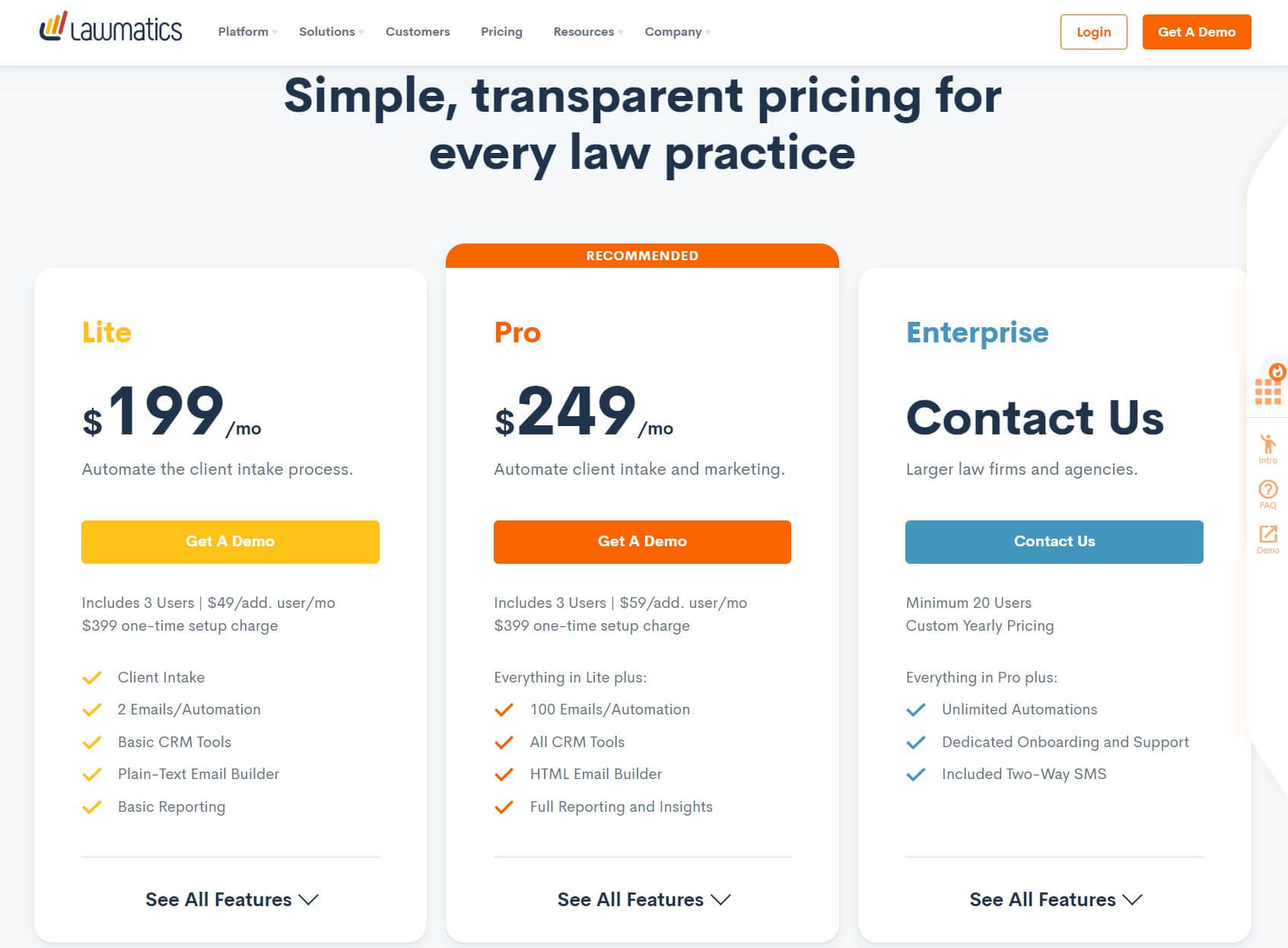Starting with the best CRM for attorneys, this paragraph aims to draw readers in with a brief and engaging overview, highlighting the importance of CRM systems in the legal field and the benefits they offer to law firms.
Exploring key features tailored for attorneys and how CRM software can revolutionize the way legal professionals manage their practices.
Overview of CRM for Attorneys: Best Crm For Attorneys
Customer Relationship Management (CRM) systems are essential tools for attorneys to manage client relationships, streamline communication, and improve overall efficiency in law firms. By centralizing client information and interactions, CRM software can provide valuable insights and help law firms deliver better services.
Importance of CRM Systems for Attorneys
- Enhance client communication and relationship management.
- Improve productivity and efficiency within the law firm.
- Track potential leads and convert them into clients.
Benefits of CRM Software for Law Firms
- Automate task management and reminders for important deadlines.
- Generate reports on client interactions and case progress.
- Integrate with email and calendar systems for seamless workflow.
Key Features in CRM for Attorneys
- Customizable client profiles with detailed case information.
- Document management for easy access to case files and important documents.
- Integration with legal research databases for quick access to relevant information.
Factors to Consider When Choosing a CRM for Attorneys
When selecting a CRM system for a law firm, attorneys need to consider specific features and functionalities that cater to their unique needs. Data security, compliance, and customization options play a crucial role in the decision-making process.
Specific Needs in a CRM for Attorneys
- Ability to track billable hours and manage client billing efficiently.
- Secure storage of sensitive client information to maintain confidentiality.
- Integration with legal practice management software for a seamless workflow.
Importance of Data Security and Compliance

- Ensure compliance with industry regulations such as GDPR and HIPAA.
- Implement encryption and access control measures to protect client data.
- Regularly update software to address security vulnerabilities and threats.
Customization Options in CRM Platforms
- Ability to create custom fields and workflows tailored to legal practices.
- Integration with third-party applications for expanded functionality.
- Scalability to accommodate the growth of the law firm and changing needs.
Top CRM Software Options for Attorneys
Several CRM software options are available for attorneys, each offering unique features and capabilities designed to meet the specific requirements of legal professionals.
Popular CRM Software Used by Attorneys, Best crm for attorneys
| CRM Software | Key Features |
|---|---|
| Lexicata | Lead tracking, client intake forms, document automation. |
| Clio | Time tracking, billing, client communication tools. |
| MyCase | Case management, calendaring, secure client portal. |
User Reviews and Ratings

- Lexicata: Rated 4.5 stars for its user-friendly interface and lead management capabilities.
- Clio: Highly recommended for its comprehensive legal practice management features.
- MyCase: Known for its intuitive design and secure client communication tools.
Implementation and Integration of CRM for Attorneys

Implementing a CRM system in a law firm requires careful planning and consideration to ensure a smooth transition and maximum benefit from the software.
Steps for Implementing a CRM System
- Identify the needs and goals of the law firm for implementing CRM.
- Select a CRM software that aligns with the firm’s requirements and budget.
- Train staff members on using the CRM platform effectively.
Best Practices for Integration
- Integrate CRM software with existing tools such as email, calendar, and document management systems.
- Ensure data migration is done accurately to retain important client information.
- Regularly update and customize the CRM system based on user feedback and changing needs.
Tips for Training Staff
- Provide hands-on training sessions to familiarize staff with the CRM platform.
- Offer ongoing support and resources for troubleshooting and assistance.
- Encourage feedback and suggestions for improving CRM usage within the law firm.
Final Conclusion
In conclusion, the best CRM for attorneys is a game-changer in optimizing workflow efficiency and client management for law firms. It’s a must-have tool in today’s competitive legal landscape.
FAQ Corner
What specific needs can attorneys have in a CRM?
Attorneys may require features like case management, document storage, client communication tracking, and billing integration in a CRM system.
How important is data security in selecting a CRM for attorneys?
Data security is crucial for attorneys due to the sensitive nature of legal information. Choose a CRM with robust security measures and compliance standards.
Which CRM software options are popular among attorneys?
Popular CRM software for attorneys include Clio, MyCase, and PracticePanther, known for their legal-specific features and user-friendly interfaces.
How can attorneys effectively implement a CRM system?
Attorneys can implement a CRM by first assessing their needs, choosing the right software, training staff, and integrating it with existing tools for seamless workflow.
What are the best practices for integrating CRM software with existing tools in law firms?
Best practices include ensuring compatibility, providing adequate training to staff, and regularly updating and customizing the CRM system to meet evolving needs.
